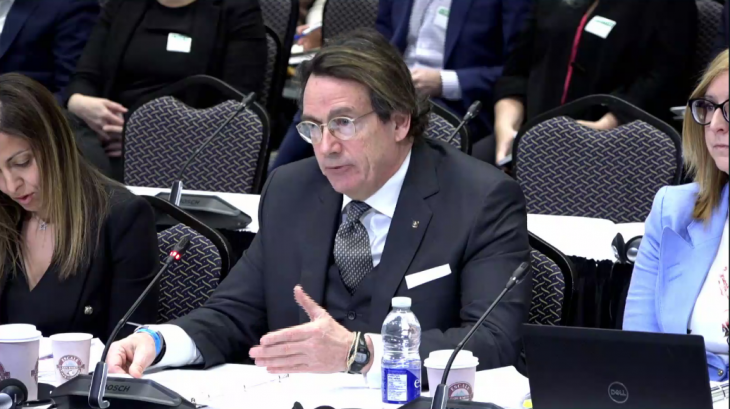
By Ahmad Hathout
As the three largest carriers saw higher wireless customer turnover in the first quarter, the presumptive fourth carrier is doing a victory lap over what it said is its relatively stable churn.
“Our churn is stable, whereas our competition is increasing,” said Hugues Simard, Quebecor’s Chief Financial Officer on a quarterly conference call Thursday. “I think that continues to be a very encouraging [key performance indicator].”
Rogers, Bell, and Telus all reported higher churn in the first quarter this year compared to the same period last year. The higher figure was met with concern, but one for which they all said they have a strategy to keep under control (the short answer is some variation of higher premium subscribers and bundling).
Quebecor’s mobile wireless business pulled in 60,200 net new customers by the end of March, an increase from the 26,200 it had in the same period last year. The difference this quarter is the acquisition of Freedom Mobile, which has been pushing very low-cost offers that had some analysts on Thursday concerned about sustainability.
This isn’t a new concern among analysts, who wondered about the quality of the subscribers and how Quebecor will manage with an average monthly revenue per user (ARPU) that is far below competitors – which was $35.94 by the end of this quarter and $3 less than in the same period last year.
“We’re happy with it,” said Simard when asked about the quality of the 60,200 new subscribers. “We’ve said a number of times that we keep striving for a good equilibrium between growth and profitability, and we feel that we’re actually performing pretty well on that front.
“Is 60,000 the right number? We feel it is the right balance right now,” he added. “When you look at our profitability and our momentum going forward…we are changing the perception and that takes some time — we feel that we still need a price advantage and we feel like we’ve probably struck the right balance between that price advantage and the momentum that we’re getting from it.”
Executives addressed similar concerns on ARPU last quarter by saying it is a company strategy to draw people in with low-cost offers and then keep them in with hard-to-pass-on deals, probably none more anticipated than the teased Freedom bundle with internet services.
Quebecor CEO Pierre Karl Peladeau added that the company is not going for record new additions, but that they are here to make money from the customers. He said the company can operate at a low-cost structure because they are “not spending money that we do not need and we have discipline.
“This is what we’ve been focusing on: we’re seeing debt reduced, cash flow increasing, revenues going up, customers who are happy,” Peladeau added.
Simard added that the strategy is to keep that balance of getting customers into the door with enough revenue – including from using the virtual network operator regime –to allow the company to continue to build networks.
“I think it’s a good way to run a business and that’s how we have always said we would do it,” Simar added.
The total mobile wireless base by quarter-end was, after the Freedom acquisition, predictably up from the same period last year – double, in fact, to 3.8 million.
The total internet subscriber base was up slightly to 1.7 million, television was down slightly to 1.34 million, and the landline base was down to 658 compared to 730 million in the same period last year.
Quebecor’s total revenues were up to $1.36 billion compared to the $1.1 billion in brought in in the same quarter last year, attributable to the Freedom acquisition which is now factored. Compared to the same period, net income was up to $167.6 million compared to the $113.5 million it pulled last year.
Telecommunications services led in revenues, with $1.2 billion, compared to the $925 million on a year-over-year basis. Meanwhile, media was down by $2 million to $168 million in the quarter.
Screenshot of Quebecor President and CEO Pierre Karl Peladeau



